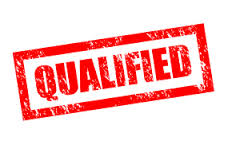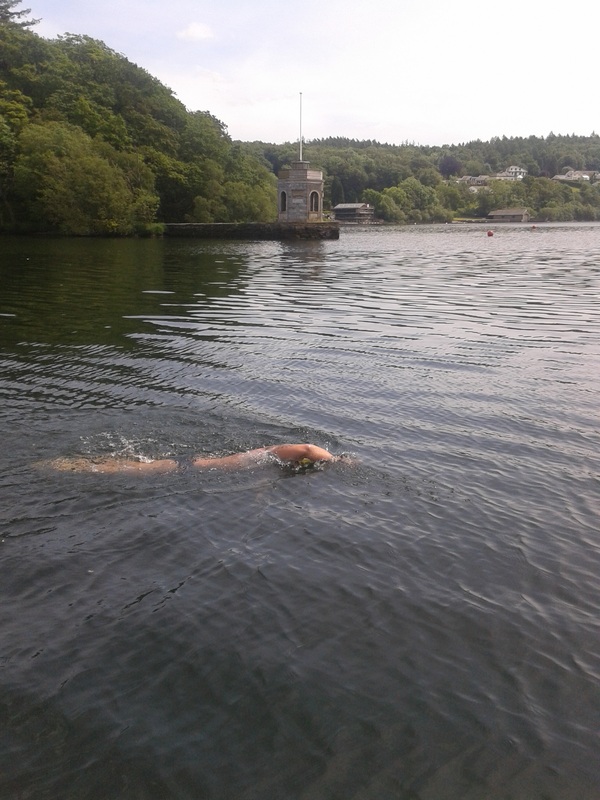| Given the title of this post, it's not too much of a spoiler to say that my 6 hour qualifier was a success. However, the build up/preparation to it could not have been any worse if I was to also expect success. Almost a full week laid up sick had resulted in well-rested muscles, but I knew my physical condition was still not 100% as Ali and I set off at 06:15 on the long trek to Windermere. My plan was simply to take the swim as gently as the water temperature would allow me - but this plan also relied on one crucial factor that up until this point had been against me for the entire training campaign: the weather! As it turned out, my break had finally come. As we crested the rise overlooking Windermere on the A591, we were rewarded with a gorgeous view of the lake basking in the early morning sun. It was clear even from such a distance that there was barely a breath of wind to disturb the surface of the water, and I knew that for once I'd have the luxury of the sun warming my back as I swam. A quick meet-up with Julie and some minor alterations in plans courtesy of the film crew's willingness to allow us to use their hire boat (something Julie was thankful for, having sliced her finger open the previous night), and I was in the water by at 11:30. The first hour was spent cruising round the small harbour bay, warming up my muscles and getting used to the water temperature which, to be honest, was not bad at all. At the first feed stop I looked up to find Ali passing me some energy gel from the hire boat close by, Julie driving, and James filming me closely whilst being overseen by Emma and Steph. The mechanics of the feed-stop itself was somewhat clunky (as most of them turned out to be), but Ali and I knew this trip would very much form a 'lesson's learned' exercise ready for other long practice swims. In all honesty, I'd been eating and drinking Lucozade for the entire three hour journey up, and could probably have swum for six hours without any sustenance at all. The real idea was to get used to feeding, in preparation for the 16 hour Channel crossing. Once fed, Julie drove the boat down the lake some 3 or so km, with me me following alongside. Though this journey down the lake made for an easier swim than dodging in an out of moored boats and avoiding raised propeller blades, it did bring its own, entirely new experience: temperature variances! Whilst the sheltered bay had been fairly consistent in temperature, now I found myself swimming through huge swathes of bitterly cold water, before finally emerging again into a warmer area. The cold patches were truly bone-numbing, and brought on an almost instant and deep-set shivering. I could not have lasted in the lake long if all of the water had been so cold. The strangest sensations though, came from the water which was warm for the top few cm, and bitterly cold underneath. Here, my arms would be warm whilst reaching forward, and then I'd have to plummet them into the unpleasant and bitter blackness for a few seconds, rotating constantly, warm-cold, warm-cold. I soon lost all track of time, and the second hour seemed to last an eternity. I honestly thought they'd forgotten to feed me. One thing that had never fully dawned on me during my preparations for this qualifier was the actual date of event. It was only on the journey up, whilst listening to celebrations in France via the radio, that I realised the irony of an ex-soldier qualifying to swim the Channel on the 70th anniversary of the D-Day landings. We were given regular reminders of the on-going celebrations courtesy of various military fly-bys, including a Lancaster Bomber and a Euro Fighter Typhoon which went roaring overhead. My own landing on a French beach still seemed like a long way off - as did the end of my qualifier. With 2.5 hours left to go, Julie dropped me off back at the harbour. This was my most dreaded part - the final hours of swimming round and round the bay, again dodging the boats, and continually having to look up and check my position. I found this put strain on my back, did not all allow me to 'switch off', and made the minutes seriously drag. In the end, though I knew Julie would not be happy, I realised that the only way I could cope with the remaining time (mentally, not physically) would be to swim further along the harbour than I really should - and to do so a little further out. Before doing this I came into the shore for what should have been my penultimate feed. Clambering across the rocks to get close enough to shore to be passed the food was a real pain. But what was worse still was then swimming back out through the warm shallow water and into the cold depths once again. I shouted to the film crew, asking them to tell Ali I would skip my last feed. The next time I crossed those rocks would be to get out of the lake, not to feed. Somewhat surprisingly I found that the last hour of the swim was in fact the easiest. A slight wind had picked up, and even at the outer reaches of the harbour the water temperature was consistent and comfortable, with no patches of cold, dark water to wear away at me. For the last thirty minutes I closely analysed my condition, asking myself how much longer I could swim for, if I really had to. My mind came up with two answers, even though only one was relevant:
Quite where the second answer came from I've no idea, but the thought of a warm, filling pub meal did help, and in the end I did have steak and ale pie (they didn't have steak and kidney) when Ali and I joined Julie post-swim. I emerged from the water after six hours feeling fresh, comfortable, and not too cold. Most importantly, however, I was pleased that even when not 100% fit, I had been able to endure a lengthy swim in the cold water, and to ultimately qualify for my actual attempt on the English Channel in August. Bring it on. |
|
0 Comments
Your comment will be posted after it is approved.
Leave a Reply. |
Alan GaleOne time soldier, part-time author, full-time training manager, husband and father. Archives
January 2024
|


 RSS Feed
RSS Feed
